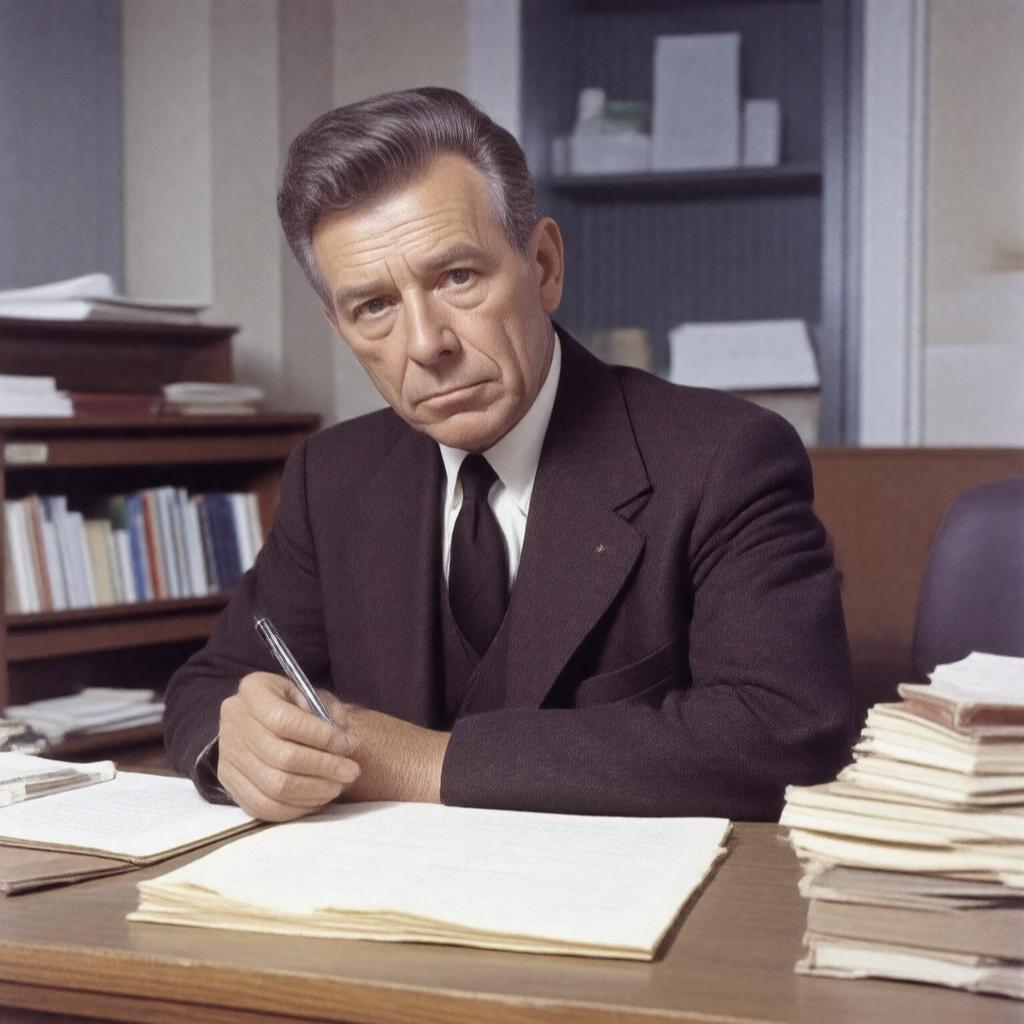Prompt
Generate an image of a middle-aged American poet in a 1960s-style Minneapolis setting, sitting at a wooden desk with a pen in hand, surrounded by papers and books, with a melancholic expression on his face, reflecting his confessional poetry style and turbulent personal life; he should be dressed in attire typical of a professor at the University of Minnesota, with a nod to his notable works such as "The Dream Songs" and "Homage to Mistress Bradstreet" in the background; style: a realistic and introspective portrait in the manner of a 1960s American literary figure.

